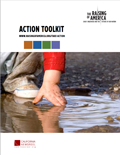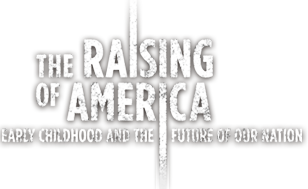Menu
Change the Conversation
The way we talk changes the way we work. Here are six ways to talk about early childhood that can help you change the conversation about why some children thrive while others flounder.
We are born with most of our 86 billion brain cells (neurons), but those cells are only weakly connected together.
Our experiences during the first years of life literally wire brain cells together and shape the architecture of our developing brains. They create a strong or weak foundation for future emotional, intellectual and social health and development.
Safe, stable and nurturing relationships and environments help build strong foundations. They are the most powerful protective forces in a young child’s life.
Parents find themselves increasingly squeezed for time, for money and for resources. Too many are cut adrift without living wage jobs, social supports, secure, affordable housing, high-quality child care and paid family leave which impede their efforts to provide the nurturing environments all children need.
These hardships can also trigger anxiety and sleepless nights, making it even harder to be the parents they want to be. And because of attunement between baby and parents, when parents are stressed by circumstances beyond their control, that stress can drip down
on their babies, altering the wiring of their developing brains with enduring consequences.
Each of us has finite reserves of self-control and attention, what Sendhil Mullainathan and others call psychic resources.
When our attention is drained by uncertainty and worries about work, juggling bills, neighborhood chaos or fear and anxiety about the future, fewer psychic resources are available to respond attentively to the often subtle emotional cues of babies and young children.
Everything that improves the economic security, safety and peace of mind of parents improves parenting—and increases children’s chances for growing into healthy, compassionate and responsible adults. These include living wages and reliable hours, secure housing, high-quality childcare, paid family leave, safe neighborhoods, flex time, desegregation and social inclusion, an end to mass incarceration, better transit…and hope.
To predict how our nation will fare tomorrow, we only need look at how our youngest children are doing today—and the numbers show we are falling behind.
Many studies suggest that investments which improve a child’s, her family’s and her neighborhood's circumstances in the earliest years of a child’s life help put that child on a strong developmental path—better learning, earning and mental and even physical health.
This in turn improves the well-being and prosperity of the nation. Today’s children are tomorrow’s families, friends, neighbors, workers, citizens and leaders.
Parents across the board report being plagued by chronic anxiety: Will my children have enough? Can I keep them safe? Can I provide what they need to succeed? Will they feel my love and learn to love in return?
In our fend-for-yourself society, even affluent families fear not having enough— while middle and low-income families, increasingly stressed for time, money and resources, struggle every day to be the parents they want to be for their young children.
If we as a community, a state, and a nation can better assure the conditions that improve all children’s chances to realize their potential, our children and grandchildren will benefit from living in a healthier, safer, better educated, more prosperous and more equitable nation. And when we make the needs of young children and their families a national priority, anxiety and fears for our own children can give way to a sense of hope and possibility.
The conditions and policies that make parenting so stressful in the U.S. aren’t natural or etched in stone. They are the result of decisions we, as a body politic, have made—and can make differently.
The U.S. has a long history of social movements which have tackled inequities and driven social change. There are many things we can do—large and small—to improve social conditions for families with young children. We’ve done it before; we can do it again.

ACTION TOOLKIT
- Eight Ways to Use the Series to Advance Your Work
- Six Elements of a New Conversation
- Planning a Successful Screening


